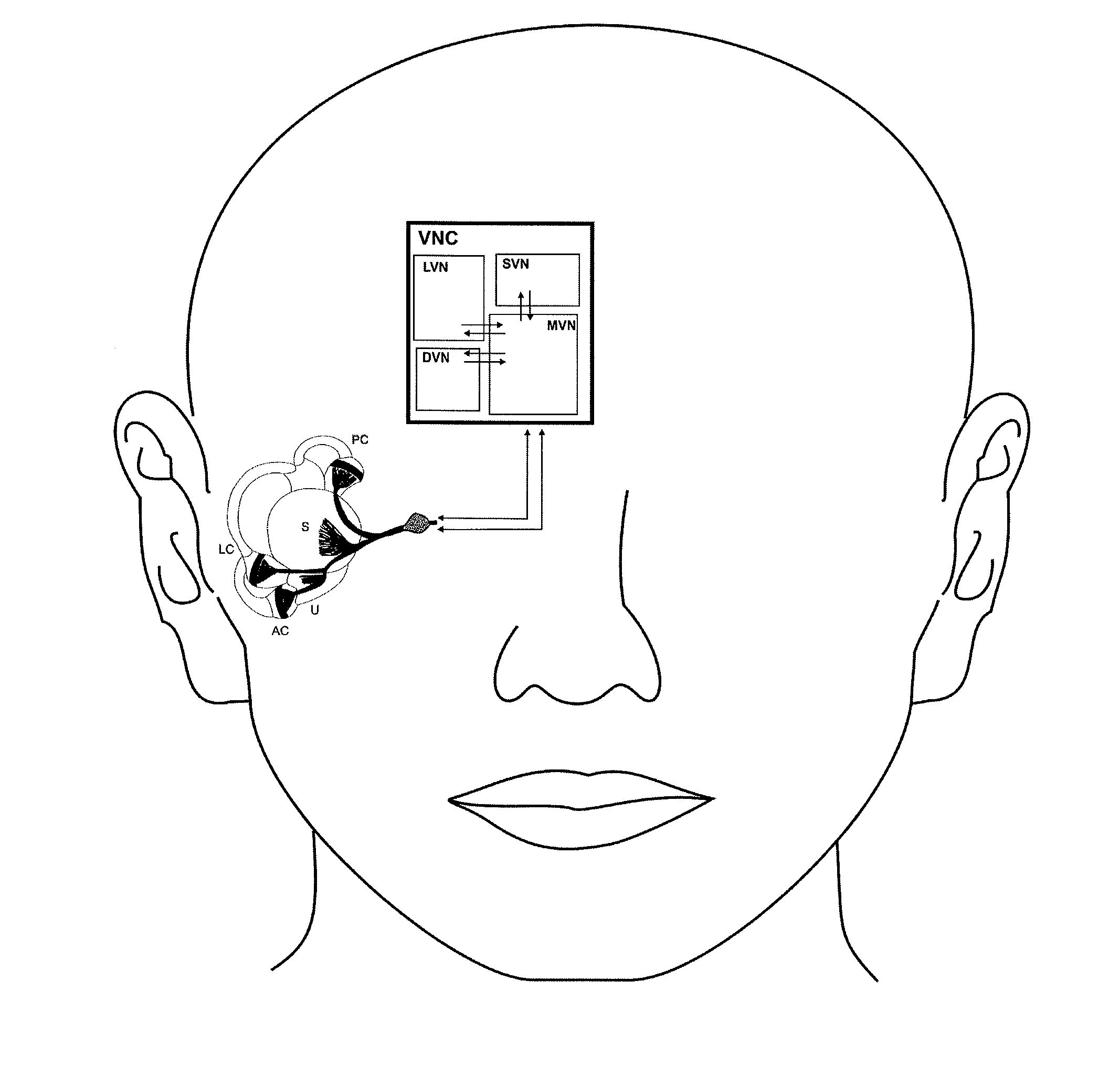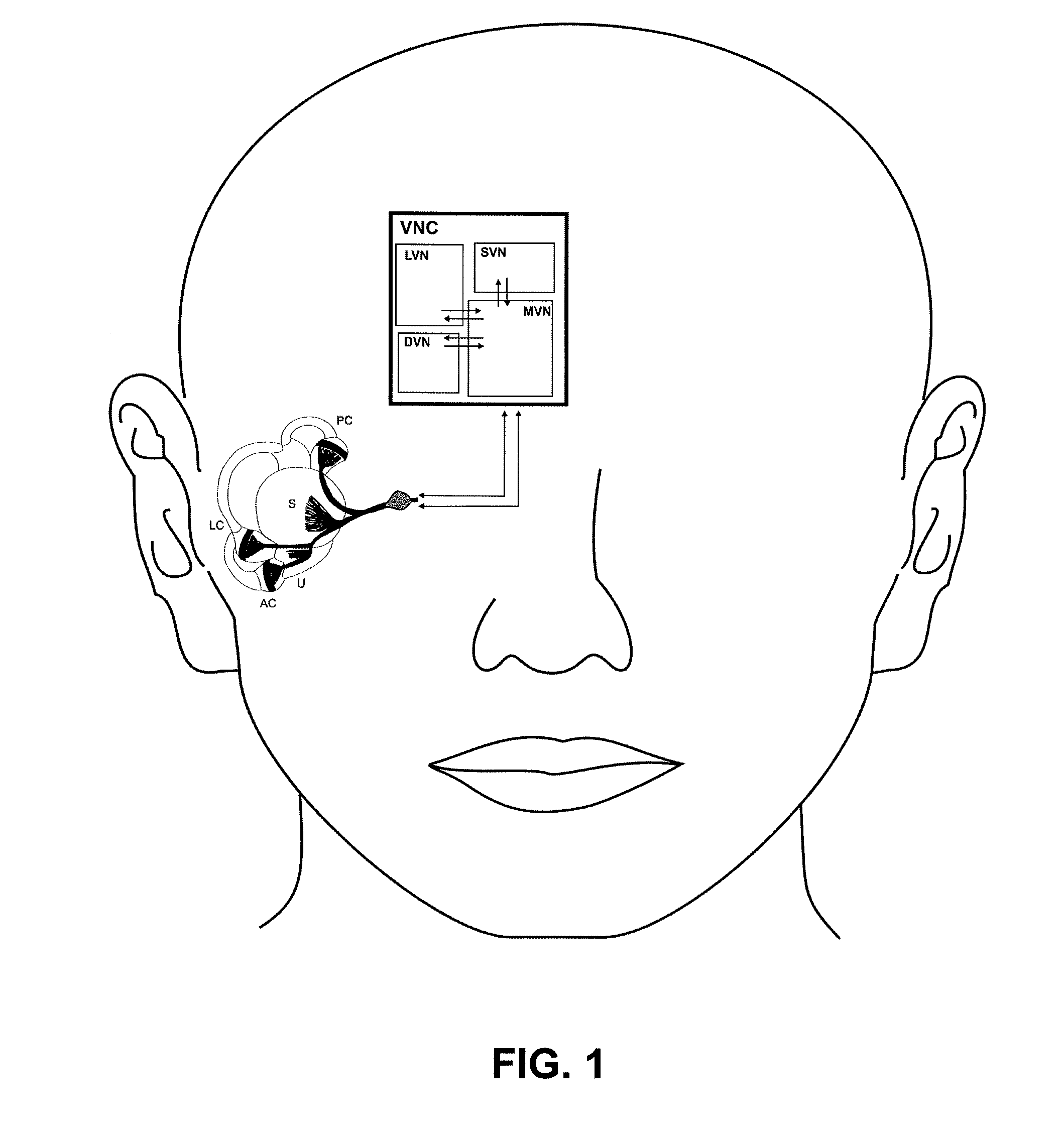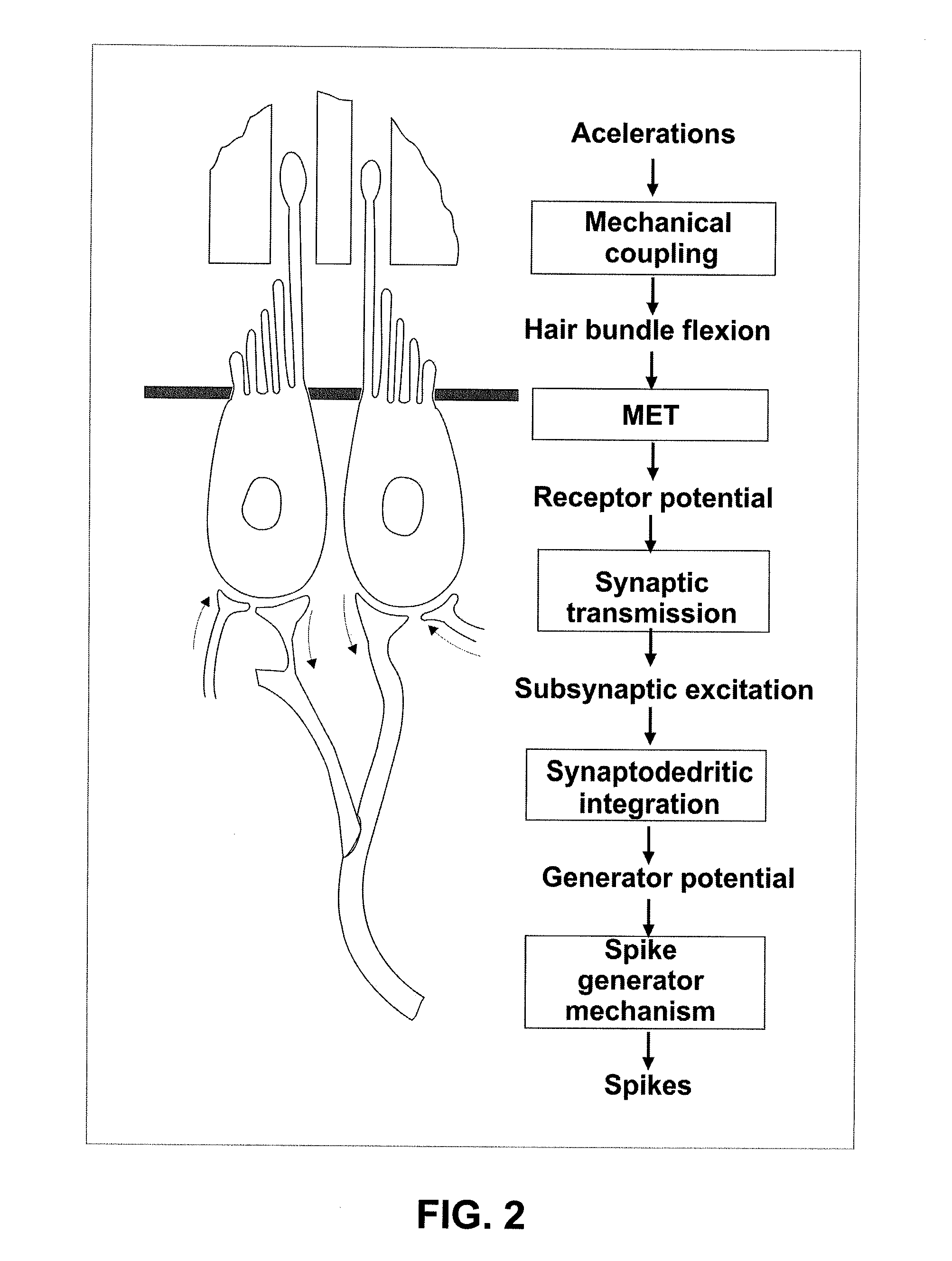Vestibular prosthesis
a prosthesis and vestibular technology, applied in the field of prosthesis, can solve the problems of reducing balance capacity, unable to make posture adjustments on its own, and posing a serious health hazard, so as to prevent a fall and prevent a fall
- Summary
- Abstract
- Description
- Claims
- Application Information
AI Technical Summary
Benefits of technology
Problems solved by technology
Method used
Image
Examples
example
Vestibular Galvanic Stimulation (VGS)
Results
[0130]The stimulator used is a current amplifier known as bridge H (see FIG. 6). When using a 9 V battery and a 0-50 KΩ precision potentiometer at the input, a current range at the output ranging between 0.2 to 1.3 mA is obtained. When using a 9 V battery and a 0-50 KΩ precision potentiometer, a current range at the output ranging between 0.2 to 1.3 mA is obtained. The electrodes consist of two 5-mm diameter silver chloride circular pieces adhered to the subject's mastoid region.
[0131]A VGS stimulation test was carried out in 13 healthy subjects, women and men, from 20 to 35 years old. From these, 7 received bilateral bipolar stimulation while they walked, 3 received monaural bipolar stimulation while they walked, 2 received bilateral bipolar stimulation while they remained standing and 1 monaural bipolar while he remained standing. The observations in both forms yield the following results A, B and C, shown in FIGS. 7A, 7B and 7C.
From whi...
PUM
 Login to View More
Login to View More Abstract
Description
Claims
Application Information
 Login to View More
Login to View More - R&D
- Intellectual Property
- Life Sciences
- Materials
- Tech Scout
- Unparalleled Data Quality
- Higher Quality Content
- 60% Fewer Hallucinations
Browse by: Latest US Patents, China's latest patents, Technical Efficacy Thesaurus, Application Domain, Technology Topic, Popular Technical Reports.
© 2025 PatSnap. All rights reserved.Legal|Privacy policy|Modern Slavery Act Transparency Statement|Sitemap|About US| Contact US: help@patsnap.com



